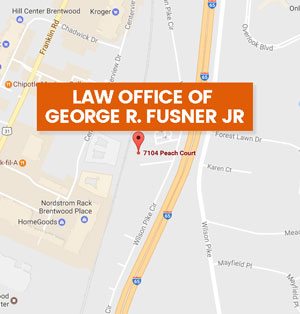In Tennessee the applicable statute of limitations is determined according to the gravamen of the complaint rather than its designation as an action for tort or contract. Pera v. Kroger, 674 S.W.2d 715, 719 (Tenn.1984). In determining the gravamen, or real purpose of an action, the court must look to the basis for which damages are sought. Bland v. Smith, 197 Tenn. 683, 277 S.W.2d 377 (1955). Another way of stating this principle is “[t]he limitation is not determined by the form of the action but by its object.” Bodne v. Austin, 156 Tenn. 353, 2 S.W.2d 100 (1928), quoting Birmingham v. Chesapeake & Ohio Railway Co., 98 Va. 548, 37 S.E. 17 (1900).
Thus, regardless of whether a complaint sounds in contract, if the suit seeks to recover damages for injuries to the plaintiff’s property, the applicable limitations period is three years as found in Tenn.Code Ann. § 28-3-105. Alexander v. Third National Bank, 1994 W.L. 424287, *3 (Tenn.App.1994). An “injury to property” need not be physical however, just as an injury to the person is not limited to bodily injury. Id. Also, actions for damages resulting from the breach of contract to a builder of real property are considered actions for damages to property even where they have sued in contract. Id.
Keller v Colgems-EMI Music, Inc., 924 S.W.2d 357, (Tn. App. 1996)
You must determine Difference between tort and contract.
The gravamen of an action is in tort and not in contract, however, when an act constituting a contractual breach also constitutes a breach of a common law duty independent of the contract. See 86 C.J.S. Torts § 4 (1997).
Where a contractual relationship exists between persons and at the same time a duty is imposed by or arises out of the circumstances surrounding or attending the transaction, the breach of the duty is a tort. In such a case, the tortious act, and not a breach of the contract is the gravamen of the action; the contract is the mere inducement creating the state of things which furnishes the occasion for the tort. Mullins v. Golden Circle Ford, Inc., 1986 WL 3937, at *7 (Tenn .Ct.App. Apr. 1, 1986) (quoting 74 Am.Jur. 2D Torts § 23); see also 54 C.J.S. Limitations of Actions § 68 (1987).
Green v Moore WL 1660828 (TN App. 2001)
TCA 28-3-105 Torts; property
The following actions shall be commenced within three (3) years from the accruing of the cause of action:
(1) Actions for injuries to personal or real property;
(2) Actions for the detention or conversion of personal property; and
(3) Civil actions based upon the alleged violation of any federal or state statute creating monetary liability for personal services rendered, or liquidated damages or other recovery therefor, when no other time of limitation is fixed by the statute creating such liability.



